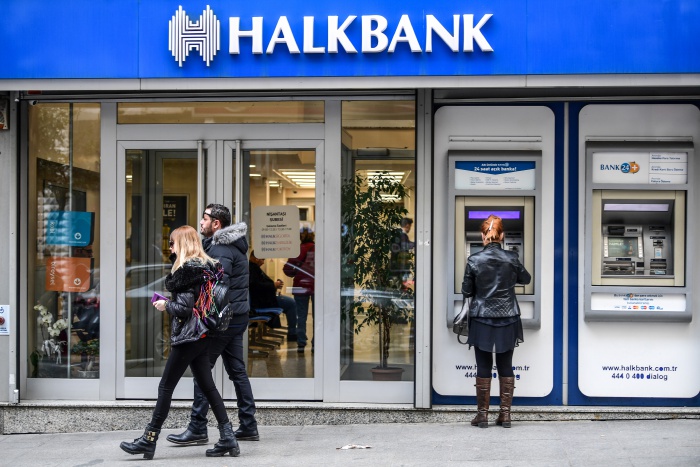Halkbank will ask the US judge overseeing a criminal case accusing it of helping Iran evade American sanctions to recuse himself, a lawyer for the Turkish bank said on Tuesday, according to Reuters.
The lawyer, Robert Cary, notified US District Judge Richard Berman of Halkbank’s intention at a hearing, without providing a reason. Berman set a July 14 deadline for a formal request.
US prosecutors have accused Halkbank and bank executives of using money servicers and front companies in Iran, Turkey and the United Arab Emirates to evade sanctions.
They said improper transactions included letting revenue from oil and gas sales be spent on gold and facilitating sham food and medicine purchases.
Halkbank pleaded not guilty on March 31 to bank fraud, money laundering and four conspiracy charges.
Berman has overseen several related cases, including the January 2018 conviction of former Halkbank executive Mehmet Hakan Atilla and a guilty plea by Reza Zarrab, a wealthy Turkish-Iranian gold trader who testified against Atilla.
Before pleading guilty, Zarrab unsuccessfully sought Berman’s recusal, citing comments by the judge at a 2014 conference in Istanbul.
Halkbank’s case gained renewed attention in June when John Bolton, a former national security adviser for US President Donald Trump, discussed it in his new memoir.
Bolton said Turkish President Recep Tayyip Erdoğan gave Trump a memo saying Halkbank was innocent, and Trump told Erdoğan in 2018 he would intervene and the problem would be “fixed” once prosecutors were replaced.
Former US Attorney Geoffrey Berman in Manhattan, whose office has overseen the case, was fired on June 20.
Last Wednesday, Turkey said Bolton’s book contained misleading presentations of Erdoğan’s conversations with Trump.
No trial date for Halkbank has been set.
Cary requested March 2022, citing the coronavirus pandemic and the “vast majority” of witnesses being overseas.
US prosecutor Michael Lockard proposed February 2021. “This is not a case where we are starting from scratch,” he said, citing the Atilla case.



